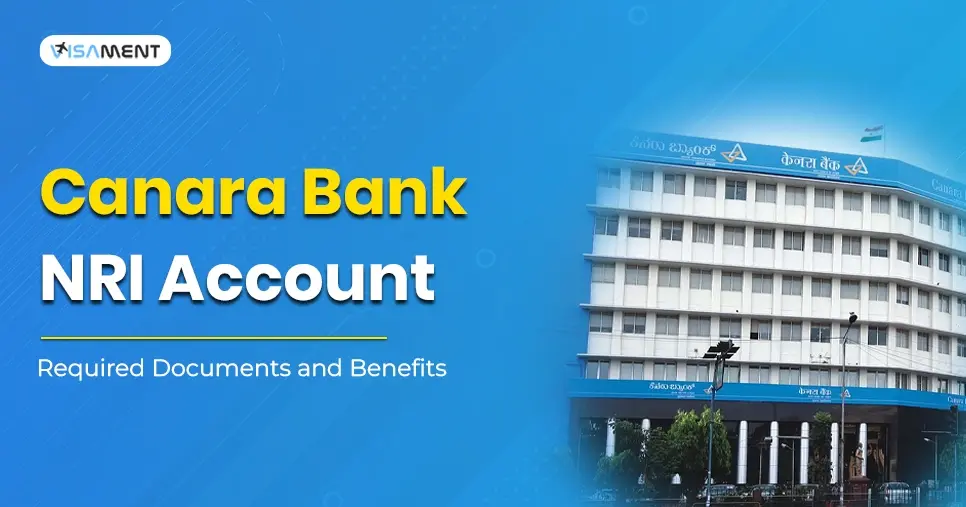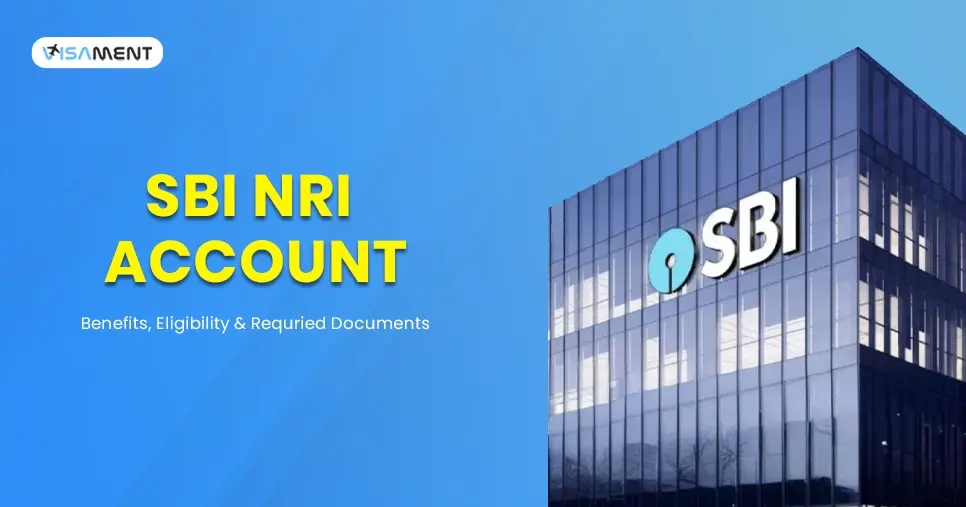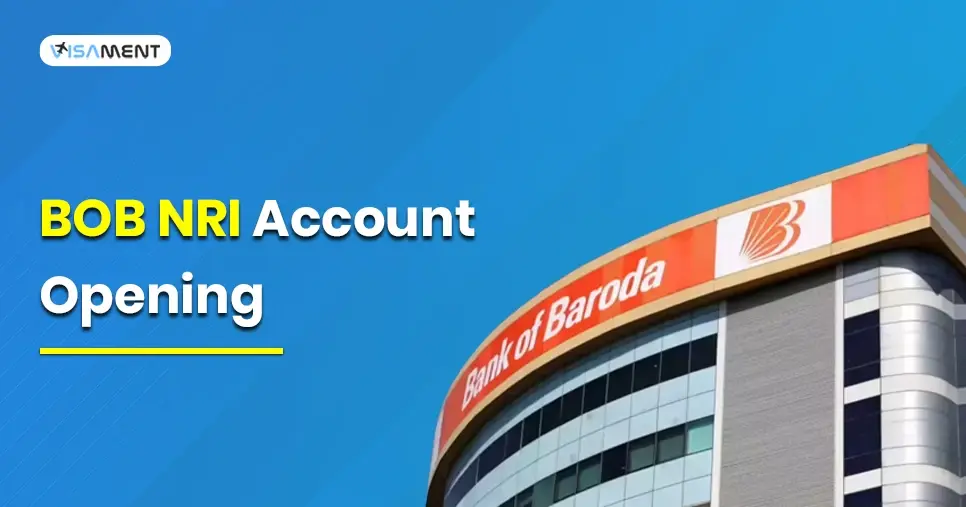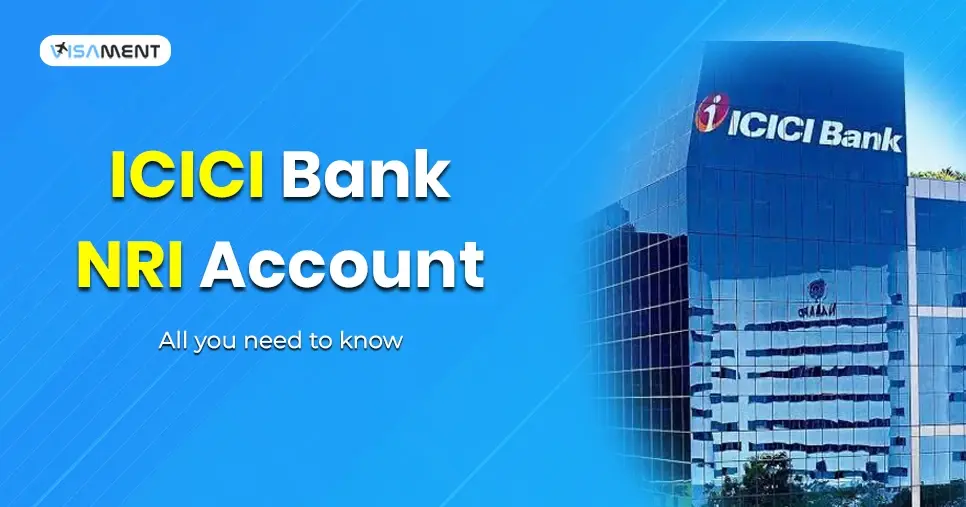Do you know that even being an NRI you can invest in India? Yes, you read it right. Through the NRI investment plan offered by the Indian government, you can do so. It means availing financial options and products for Non-resident Indians to invest their money in the Indian market. In addition, it helps them to grow their wealth, earn passive money, and diversify their portfolio of investments. Also, take the perks of potential investment returns given by the Indian economy. Want to know more about it and the NRI investment options available in India? Read the blog and get answers to all your questions. Moving ahead, let's first know the performance of India and other countries on CAGR.
Best NRI Investment Plan for Non-Resident Indians to Invest in India
Below is the list of top NRI investment plans available for NRIs in India:
| NRI Investment Plan | Asset Under Management (AUM) | 3 Year Returns | 5 Year Returns | 10 Year Returns |
|---|---|---|---|---|
| Max Live Online Savings Plan | Rs. 40313 Crore | 27.73% | 31.47% | 19.30% |
| TATA AIA Fortune Pro | Rs. 21583 Crore | 25.35% | 29.24% | 18.95% |
| Birla Sun Life Wealth Aspire Plan | Rs. 24079 Crore | 21.24% | 23.89% | 16.78% |
| PNB Metlife Mera Wealth Plan | Rs. 7465 Crore | 29.31% | 32.80% | 16.48% |
| Bajaj Allianz Smart Wealth Goal | Rs. 32764 Crore | 20.48% | 22.28% | 15.61% |
| HDFC Standard Sampoorn Nivesh (11X) | Rs. 69287 Crore | 21.28% | 30.01% | 15.48% |
| Kotak Mahindra OM E-Invest | Rs. 21312 Crore | 19.39% | 20.86% | 14.80% |
| ICICI Prudential Signature | Rs. 130859 Crore | 19.21% | 21.25% | 12.98% |
These are the top NRI investment plans on which NRIs can spend their money. Apart from all these, there are other NRI investment options in India too. Want to know what they are? Read the next section and get your answer.
List of NRI Investment Options for Non-Resident Indians
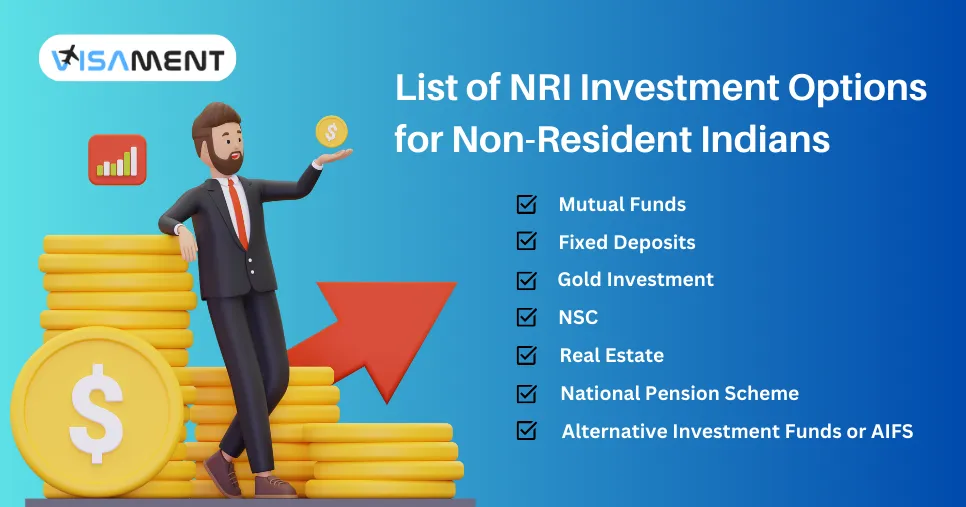
Over the years, the Indian government has made a lot of efforts to make it simple for NRIs to invest in India. Here is the list of NRI investment options available in India to maximize their returns.
Mutual Funds
Mutual funds are considered as the lucrative long-term investment option. With this, just like Indians, they are popular among NRIs as well. Based on your requirements and goals you can find several types of funds. Mainly it includes equity, hybrid, and debit funds. You can invest in MFs in two ways. First through lump sum and second through systematic investment plans (SIPs). However, to invest in this option, NRIs should first update their residency status and NRE/NRO account details. Also, they should share these things with the broker or concerned Asset Management Company (AMC). With this, if any person's residential status changes to NRI, he/she needs to do a fresh KYC.
In addition, it is vital to know that NRIs from Canada and the US may face issues in investing in mutual funds in India. It is because of the few AMCs that may not be compliant with the Common Reporting Standard (CRS) or Foreign Account Tax Compliance Act (FATCA). It further impacts the issues related to taxation/repatriation of profits made on the investment. Apart from that, you can also continue your mutual fund through systematic investment plans (SIPs). However, for this, you need to update your address and account information with AMCs.
Fixed Deposits
For NRIs fixed deposits or FDs are one of the safest ways to make investments in India. The following investment also aids you earn a fixed interest on the invested income. In addition, they are low-risk investment options with fixed interest rates. Also ideal for NRIs who are looking for a stable income. Moving ahead, the NRI fixed deposits in India are of three types. These are as follows:
Foreign Currency Non-Resident (Banks) Fixed Deposit
For maintaining and investing funds in India FCNR accounts are ideal thing. The accounts type of them are deposits. It allows you to do premature withdrawal after one year. In addition, opening these accounts involves transferring the NRE account. The interest you earn in this is tax-free. Also the interest and principal on it are completely repatriable. Apart from this, it does provide overdraft facilities. So, one chooses FCNR accounts for saving in foreign currencies.
Non-Resident External (NRE) Fixed Deposit
To deposit your earnings in foreign currency changed to Indian rupees you can open an NRE FD account. Also, if you want to repatriate your interest and principal on the investment to your residency country it can done.
Non-Resident Ordinary (NRO) Fixed Deposit
To maintain your income generated in India in Indian currency you can open a non-resident ordinary fixed deposit account. This income may be from rental income, dividends, pensions, and similar sources. However, if you earned interest over Rs 10 Lakhs in India then it is taxable. The interest rate for it is 33% per annum with cess and surcharge.
Gold Investment
Do you know like Indian residents, NRIs can also invest in gold in India? For this several ways are available. It includes gold ETFs, physical gold, and gold mutual funds. However, at present, they are not allowed to invest in sovereign gold bonds. Also, to do gold investment in India, NRIs need a depository Demat account. In this, all their units and securities are kept in electric format. With this, it is also required that they have a working NRO/NRE bank account to get perks from their gold investment.
Moreover, talking about the taxation on the selling of physical gold depends upon the long-term and short-term capital gain. For example, if you sold the gold within three years of buying, it counts as short-term capital gain. With this, for gold Exchange Traded Funds (ETFs) no TDS is done if the investment is directly done through the stock exchange of the country. However, as per the current tax laws, you need to pay capital gains tax on it. Also, if you gain NRI status after applying for SGB or you already hold it and then become NRI, in this case, you can have this investment till its maturity. But you will not be eligible to make further investments on this after getting NRI status.
NSC
The National Savings Certificate (NSC) is a government-backed low-risk option for investment in India. For resident Indians, there are no restrictions to invest in this scheme. However, in the case of NRIs, they need to follow the list of rules and regulations to invest in this option. In addition, if a person has invested in NSC before gaining the NRI status, he/she can continue it. However, they are not allowed to make any further investment in the NSC after gaining the NRI status.
Real Estate
Real estate is one of the popular NRI investment options for non-resident Indians in India. In recent times, the purchasing of property has seen a major growth value in cities like Mumbai, Pune, New Delhi, and more. Many of the NRIs have bought several properties in these cities of India and rented them to earn a passive income. This investment option is considered good in India as the growth of it is momentum. However, in this, NRIs do have not permission to agricultural land or any kind of plantation property in India. Hence, it is advisable for them, to consider other options and the risks associated with the property before buying it. Also, they can use their FCNR, NRO, and NRE account for transactions.
National Pension Scheme
The National Pension Scheme (NPS) is a long-term retirement savings scheme made for NRIs aged between 18 and 60. With a minimum contribution of Rs 500. In addition, annually they need to pay a minimum of Rs 6000 while complying with KYC norms. Based on the criteria set by the Pension Fund Regulatory and Development Authority (PFRDA) these funds are managed. Also through this, under Section 80CCD (1B) NRIs can gain tax benefits. Along with it receives a potential return on market-linked and a pension after retirement.
Alternative Investment Funds or AIFS
The Alternative Investment Funds (AIFS) are different from the traditional investment options. It includes real estate, private debt, private equity, venture capital (start-up companies), and more. On the basis of strategy, risk profile, and investment objective these are categorized that are as follows:
- Category 1: It includes investment done in new companies and medium or small-scale businesses. For example venture capital funds, social venture funds, medium and small enterprise (SME) funds, and more.
- Category 2: This investment type includes investments done on debt or equity instruments involving unlisted companies. For example private debt funds and private equity funds.
- Category 3: This investment involves investing in shares of the listed companies. Generally, these are done for long-term investments.
To make the right choice NRIS should take help from an investment advisor. Taking guidance aids them in knowing the relevant regulations of these investments. Also, provide them with hassle-free transactions. With this, moving ahead, let's know why NRIs prefer investing in India.
Why do NRIs choose to Invest in India?
Well, India offers NRIs with a wide range of investment options. It includes real estate, AIFS, equity, mutual funds, and more. Also, the Indian economic system is also growing with the potential to provide high profits in the long term. In addition, being a part of the growth story of India is an emotionally connected and financially lucrative journey for NRIs. Moving ahead, these are some of the perks that NRIs get from investments made in India.
High-Growth Potential
As per the report of India Development Update (IDU), India is the fastest developing major economy. In addition, within years the country has experienced a rapid hike of 8.2% in the financial year 2023-24. This showcases the growth of the country in recent years. Considering this, NRIs making investments in the country can experience rapid growth along with the development of India.
Portfolio Diversification
Being a part of the growing Indian economy offers portfolio diversification to NRIs. In addition, it further assists in lowering the concentration risk of the geography. Apart from this, it also provides NRIs benefits in government-backed schemes and other investment options. Apart from this, the insurance plans, specifically, the ULUPs and other retirement plans come at lower premiums than they got abroad.
These are the key two reasons why India is a popular choice among NRIs for making investments. Moving further, let's know the documents NRIs need during the investment process.
Documents Required for NRIs to Invest in India
To invest in India, the NRIs need the following documents on their side:
- Match the definition of NRI: To invest in India as an NRI a person needs to match the definition of it as per the Indian government.
- Have a Valid Indian Passport or Visa: To showcase your NRI status you need to have a valid Indian passport or visa.
- Open an NRO or NRE Account: To facilitate your investment services in India you need to open a non-resident ordinary (NRO) or non-resident external (NRE) bank account.
- Get a Permanent Account Number (PAN): It is a mandatory document for all types of investment options in India. However, in case you do not have it submit a declaration in lieu of a PAN card. The document states non-residency for tax purposes.
These are some of the vital documents that you need to submit during your investment in India as an NRI. However, additional paper may also be needed during any specific investment plan. So, it is advisable to get help from a financial advisor or institution for a specific investment.
Conclusion
Lastly, due to globalization, investment opportunities are growing worldwide. Considering the NRI investment options, non-resident Indians are willing to invest their income in their home country. However, before making any decision NRI should go through the applicable laws and restrictions. Also with available investment options NRIs can diversify their investment portfolio. In addition, can make the right financial decisions to secure their future. Here the whole blog was all about the available investment options for NRIs. Furthermore, in case you need any help with your Indian passport or other miscellaneous services connect with Visament. The experts here are willing to guide you at every step of your journey. And with us surely you get the best assistance by your side.
Frequently Asked Questions
Yes, as an NRI investing in India is a good option. It allows you to take the benefit of potential growth of the country. Also, there are several investment options available for NRIs to grow their wealth and financially secure their future.
The NRI investment options for NRIs available in India include fixed deposits, mutual funds, real estate, a national pension scheme, gold, and more.
The incomes generated by NRIs in India are taxable in India. This involves rental income from real estate, return on investment, and both short and long-term gain on captain arising from the purchase or sale of assets in the country.
Yes, you can invest in SIP (Systematic Investment Plan) in India like a local Indian resident. Also, it can provide you benefit with rupee appreciation and growth in wealth over time.
Being an NRI you can only continue your existing PPF (Public Provident Fund) account that was opened when you were an Indian resident. Considering this, you are not allowed to open a new PPF account.
The responsibility of tax residency is upon the individual. He/she should consult their personal tax advisor or chartered account (CA) for this. The determination is done by answering certain questions involving the payout form that further guides the TDS application. It is vital to form a tax residency to get the benefits of the Double Taxation Avoidance Agreement (DTAA).
For NRIs fixed deposits are one of the great options to earn fixed return investment in India. In addition, these are stable and secure options for investment with banks and other financial institutions.
Yes, NRIs can invest with a PAN card and NRO/NRE account in a mutual fund and other asset classes. However, the required documents may differ as per the asset class.


